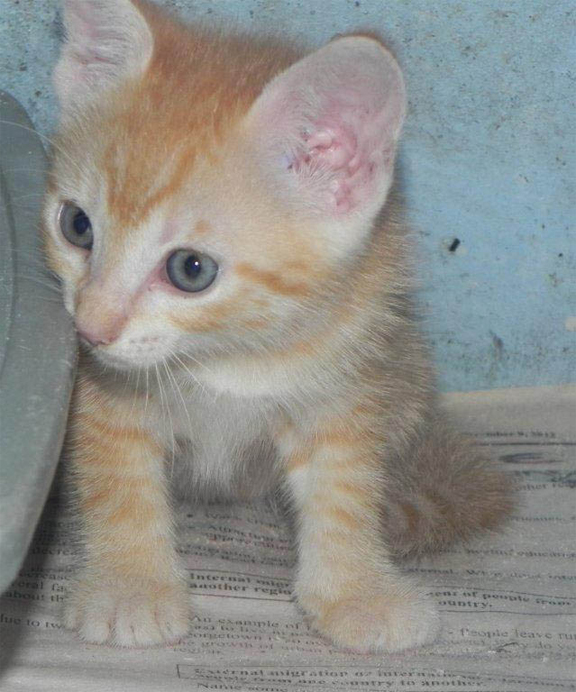Continued
Last week, we began with an ailment which impacts upon fertility/reproduction, and which is associated with an inflammation of the testicles (orchitis). All that we wrote about last week had to do with an acute orchitis, ie an inflammatory process, which has a sudden onset. We explained that the ‘suddenness’ could be associated with physical trauma (eg, kicks to the testicles, cuts, bullet wounds, nail sticks, etc) allergies (eg, stinging nettle affecting the scrotum and, by extension, the testicles), chemical/electrical burns, specific diseases, cancer and so on.
Symptoms
The signs of acute orchitis (or acute orchiepididymitis – as I explained last week should be the more correct name) are swelling and pain in the testicles. The testicle becomes enlarged and hard.
Your dog will probably not allow you to handle him. His gait is spread-legged with his abdomen tucked up. He sits most of the time, especially on a cool surface.
 I should mention in passing that whenever there is heat in the scrotal/testicles area, then libido (sex urge) is decreased and the quality of sperm is reduced.
I should mention in passing that whenever there is heat in the scrotal/testicles area, then libido (sex urge) is decreased and the quality of sperm is reduced.
There is another form of orchitis (or orchiepididymitis) and that is chronic orchitis.
Chronic orchitis (or chronic orchiepididymitis) may develop as a resultof the acute form which we were referring to above and last week. Or, it may actually develop without there being a previous history of testicular inflammation. What we are saying is that if the situation (list of possible causes), as described last week and above, is not corrected, the ailment could progress to the long-term (chronic) phase.
Of course, infertility is the natural sequel. The animal eats well and does not otherwise exhibit any signs of suffering. But in an environment of persistent and long standing inflammation, sperm will not be produced in the testicles – therefore the infertility (sterility).
Your vet, on physical/clinical examination of the patient, (especially if you brought the dog in because he is unwilling to mate, or no conception results from mating) may find that the testicles have adhesed (become stuck) on to the scrotum. Very often, on rectal palpation, the vet will find that the prostate gland may feel different from the usual (too soft or too firm); it may be irregular and painful to the touch.
The vet could even use laboratory facilities to check the animal’s semen, not lastly for the pathological cells. A urinalysis with bacterial culture would always help. There was a time in my life when I would, in such cases, carry out routine and more reliable biopsies (surgically removing cells from the testicles) in order to determine bacterial invasion and the presence of abnormal cells. However, such interventions would necessitate the presence of auxiliary facilities and highly trained technicians to be readily available at an affordable cost.
Treatment

The therapy that your vet will introduce (or advise you to implement) would be based on the cause and the level of trauma experienced by the testicles. As always, the causative agent has to be removed – not lastly under veterinary advice. Minor (superficial) scrotal injuries must be cleansed and an antibiotic ointment applied locally. Rub it in well, because the dog might begin to lick it off as soon as you have rubbed in on.
Anti-inflammatory agents might also be introduced as part of the therapeutic arsenal. Cold water packs may decrease testicular damage and reduce the heat produced in that area.
Due to the possible serious sequel of trauma to or infection in the testicles, I would always advise that as soon as you notice something wrong with the scrotum/testicles, you should contact your vet.
In the case of chronic orchitis, the treatment is difficult because the underlying cause may not readily be known and the symptoms are insidious and do not reveal themselves early. So, the likelihood for the return of full fertility is not too high. This leads us to the statement that if fertility of the male is not a big issue (ie, the owner does not want/need the dog to mate), then castration could be considered.
Please implement disease preventative measures (vaccinations, routine dewormings, monthly anti-heartworm medication, etc) and adopt-a-pet from the GSPCA’s Animal Clinic and Shelter at Robb Street and Orange Walk, if you have the wherewithal to care well for the animals. Do not stray your unwanted pets, take them to the GSPCA’s Clinic and Shelter instead. If you do not wish your pet to have puppies or kittens, you may exploit the GSPCA’s free spay and neutering programme. If you see anyone being cruel to an animal, or if you need any technical information, please get in touch with the Clinic and Shelter by calling 226-4237.









